George Orwell: A Literary Luminary
George Orwell, a prominent figure in 20th-century British critical realism, is best known for his masterpieces, Animal Farm and 1984. He is often hailed as “the stern conscience of a generation.”
Animal Farm: A Timeless Allegory
Written in 1943, Animal Farm stands as one of George Orwell’s most iconic works. It’s a subversive allegorical tale that has always resonated deeply with me.
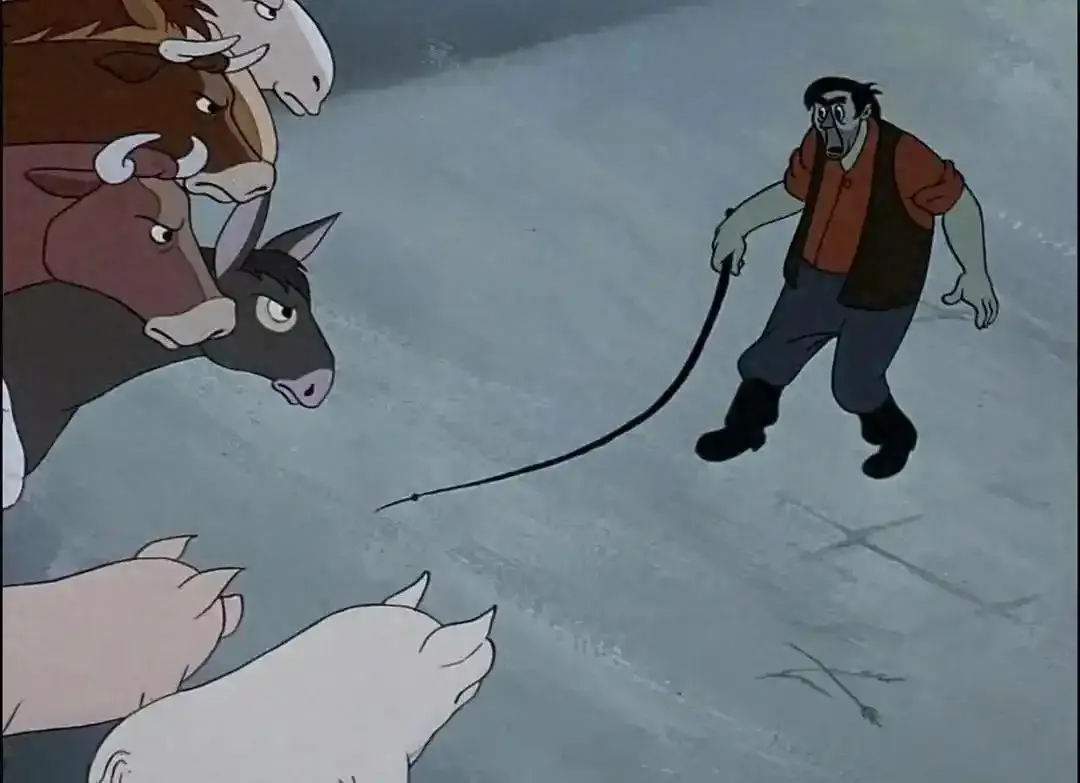
The narrative is deceptively simple: the animals of Manor Farm, driven by discontent with their human overlord, Mr. Jones, stage a revolution. They believe their miserable existence is a direct result of Jones’s mismanagement and fondness for gambling.
Inspired by Old Major’s vision of a utopian future, the animals’ eyes are set ablaze with hope. In the ensuing Battle of the Cowshed, they successfully overthrow Jones, becoming, in their minds, the masters of their own destiny.
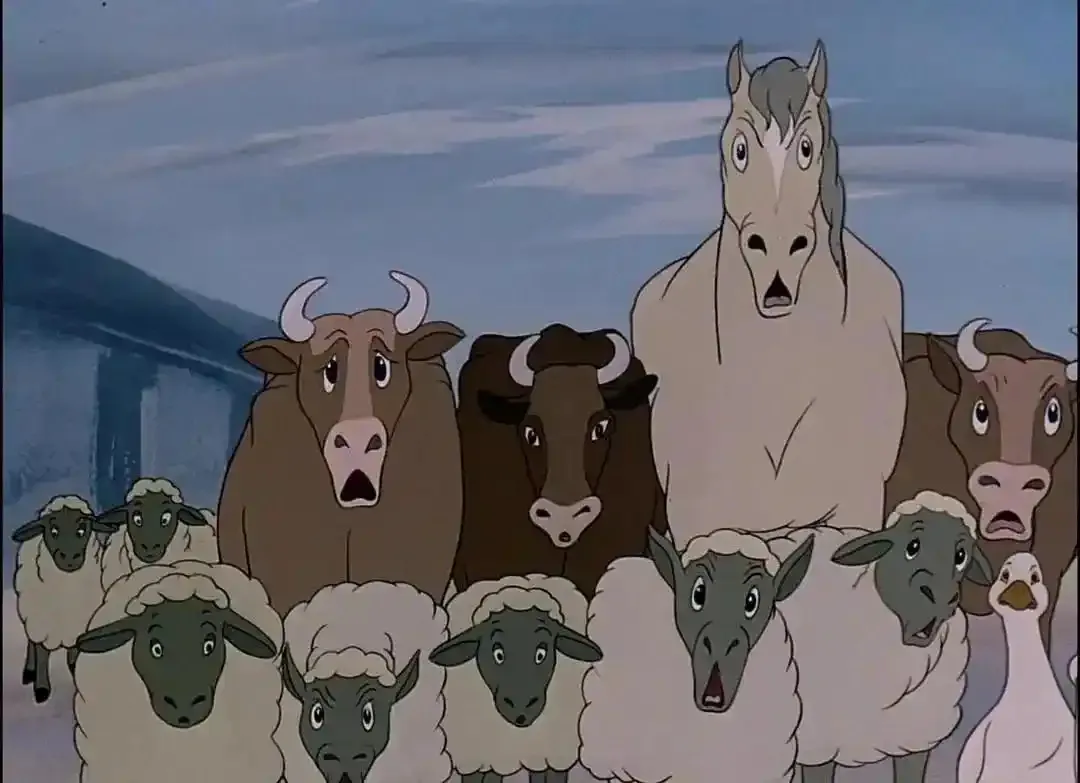
Initially, the animals are filled with enthusiasm, working together to establish rules and grand plans. However, their newfound society soon encounters setbacks, and their initial fervor wanes. Idealism gives way to reality, symbolized by Napoleon’s rise to power and Snowball’s expulsion.
The Rise of Totalitarianism
A regime of discipline and totalitarian control descends upon the farm. Napoleon’s rule becomes a perfect model of a totalitarian society. The nine ferocious dogs, serving as a violent enforcement mechanism, represent both physical intimidation and a metaphorical castration of the spirit. Orwell’s depiction of this disciplinary system, seen through the animals’ eyes, mirrors Foucault’s concept of the “panoptic prison” – where constant surveillance, or the possibility of it, is enough to control the populace.
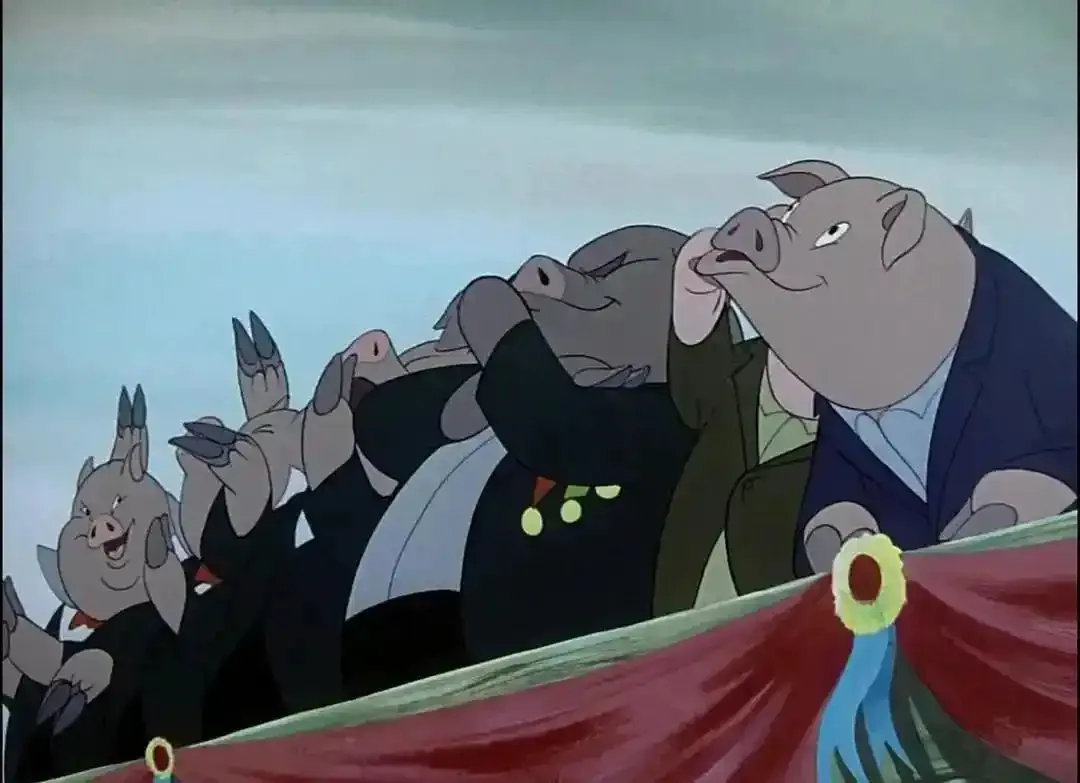
The terrifying aspect of this domestication mechanism lies in its self-replicating nature. When Boxer adopts “I will work harder” as his personal mantra, and when the sheep drown out dissent with their unified chant of “Four legs good, two legs better,” discipline has been internalized as a collective unconscious. The animals, toiling to build the windmill, unknowingly construct the very prison that confines their minds. This absurdity is a hallmark of totalitarian rule.
The Corruption of Language
Ideology is used to cloak their despotic rule, with language becoming a tool for power alchemy. “Reductions in rations” are euphemized as “readjustments,” and bloody purges are presented as “purifications of order.” The original meaning of words is systematically emptied, turning them into puppets for manipulating perception.
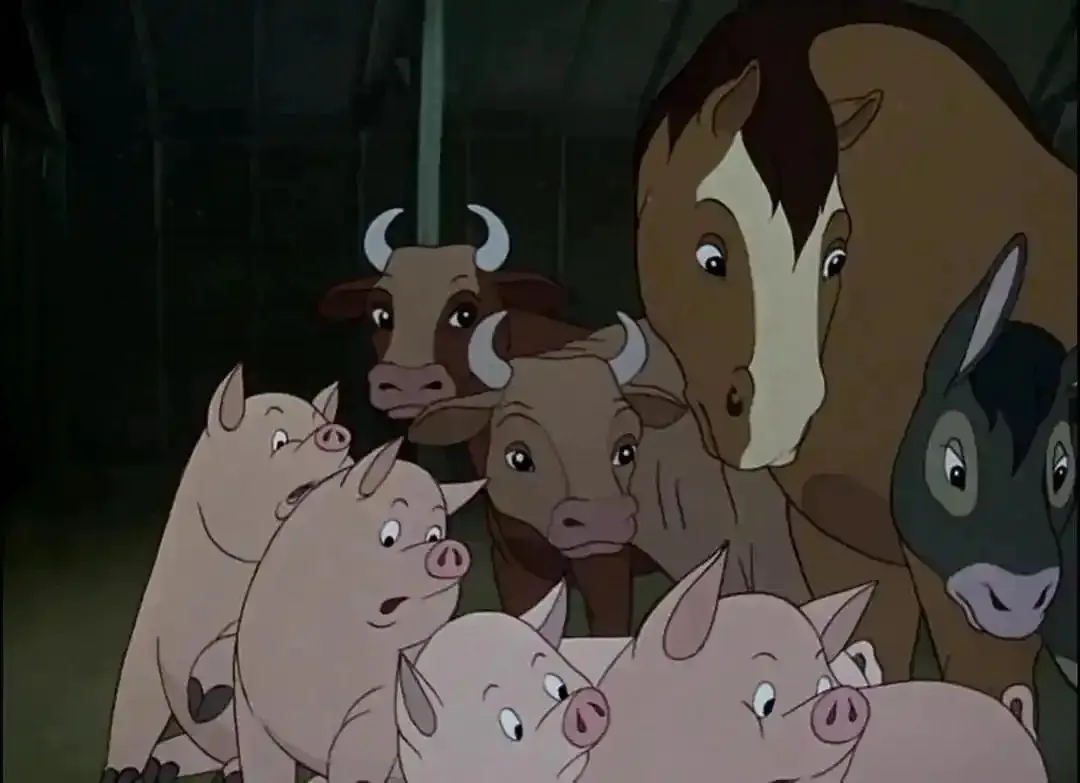
This ideological control ultimately gives rise to the “doublethink” concept, famously explored in Orwell’s 1984 – the ability to simultaneously hold two contradictory beliefs. The animals of Manor Farm must believe that the windmill is a product of collective wisdom, while also accepting its repeated collapses; they must celebrate equality while submitting to the privileges of the “more equal” ruling class. This cognitive dissonance leads to a collective mental breakdown, forming the bedrock of totalitarian control.
Revolution: A Cycle of Oppression
The revolution’s corruption becomes irreversible when the Seven Commandments are continuously altered to suit the ruling pigs, and when the animals realize Napoleon has begun walking on two legs. Orwell reveals not only the corrupting influence of power but also the cyclical curse of civilization – those who claim to break the chains of oppression often become the new chain-makers. Revolution, in the end, simply replaces one form of bondage with another.
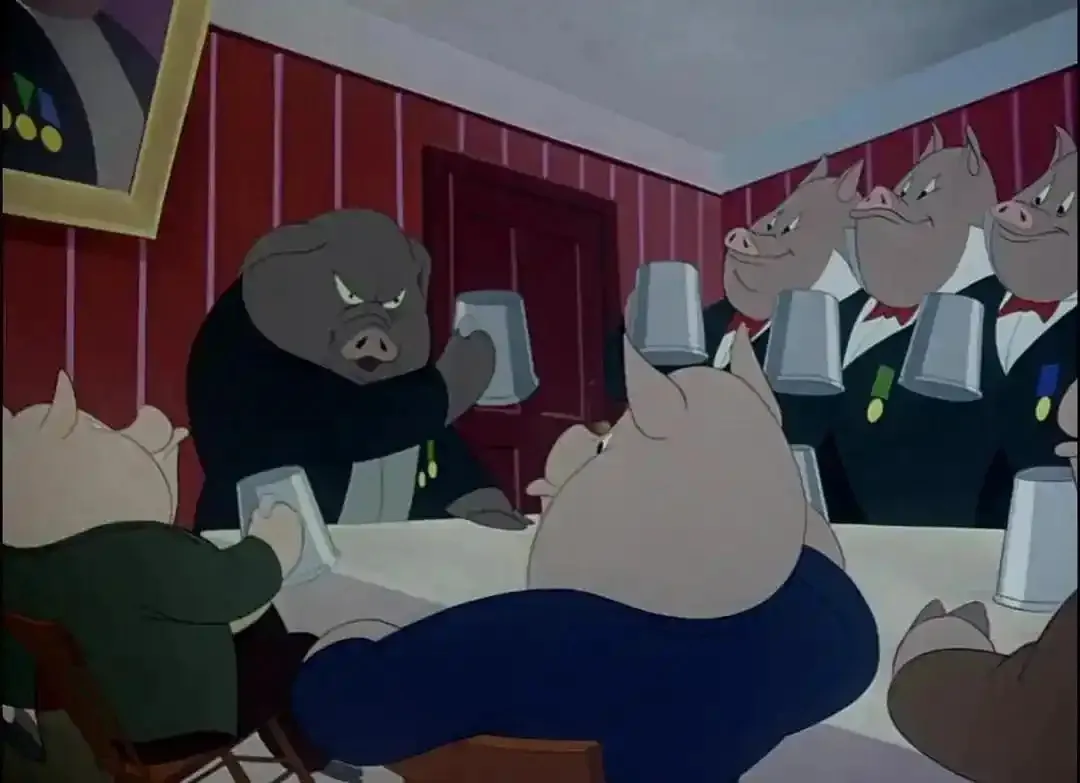
Orwell’s genius lies in his refusal to limit his critique to the superficial aspects of the system. Deep within the allegory of Manor Farm lies a philosophical inquiry into the foundations of modern civilization: when rational enlightenment devolves into a new form of ignorance, and when technological progress becomes a tool for control, are humans destined to eternally cycle through the paradox of freedom and order?
The absurd scene at the end of the story, where Napoleon and the other pigs toast with humans, shatters any romantic notions of revolutionary narratives. When Napoleon dons Jones’s clothes, and when “Animal Farm” quietly reverts to “Manor Farm,” Orwell reveals not only the cyclical curse of power but also the incurable cancer within civilization – any attempt to establish a perfect order may become a breeding ground for new forms of totalitarianism.
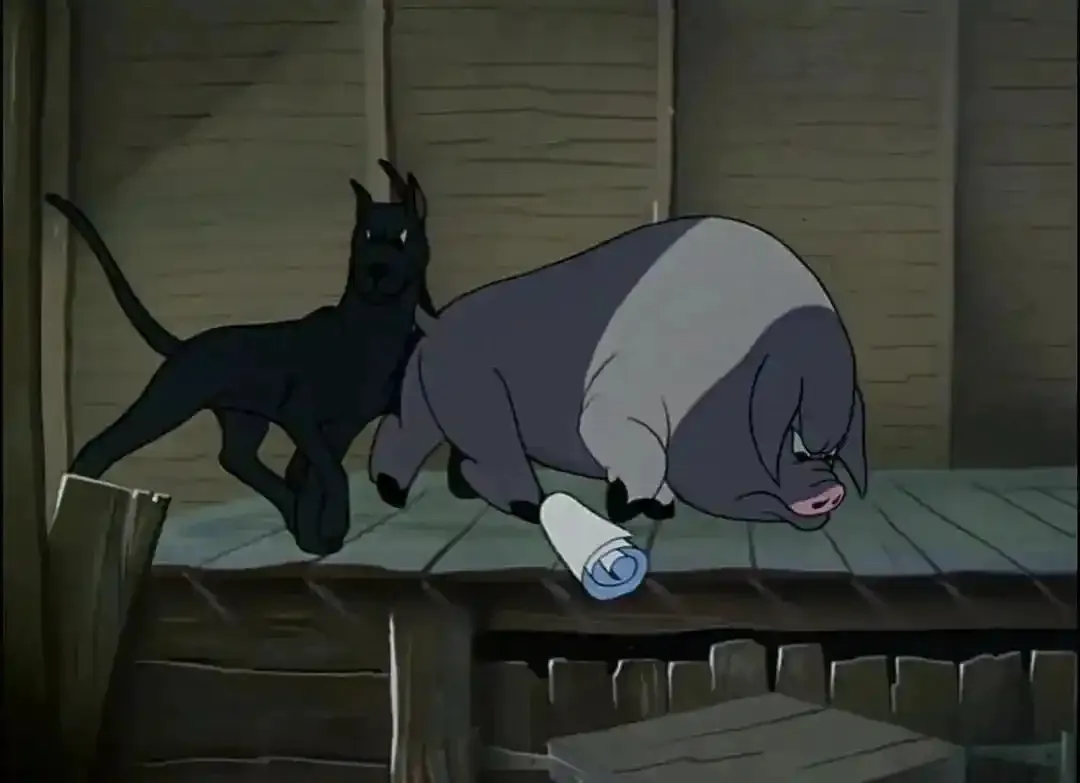
A Timeless Warning
George Orwell’s magical depiction of Manor Farm not only foretells the dangers of totalitarian societies but also plants a seed of eternal warning within the very fabric of human civilization. This allegory about an animal revolution continues to resonate deeply, because it speaks directly to the most profound paradoxes of civilization.
The fable of Manor Farm reminds us that true awakening lies in maintaining vigilance against any absolute truth and safeguarding the spark of independent thought. For the most dangerous moment in civilization often begins when we willingly surrender that precious space of freedom within our minds.